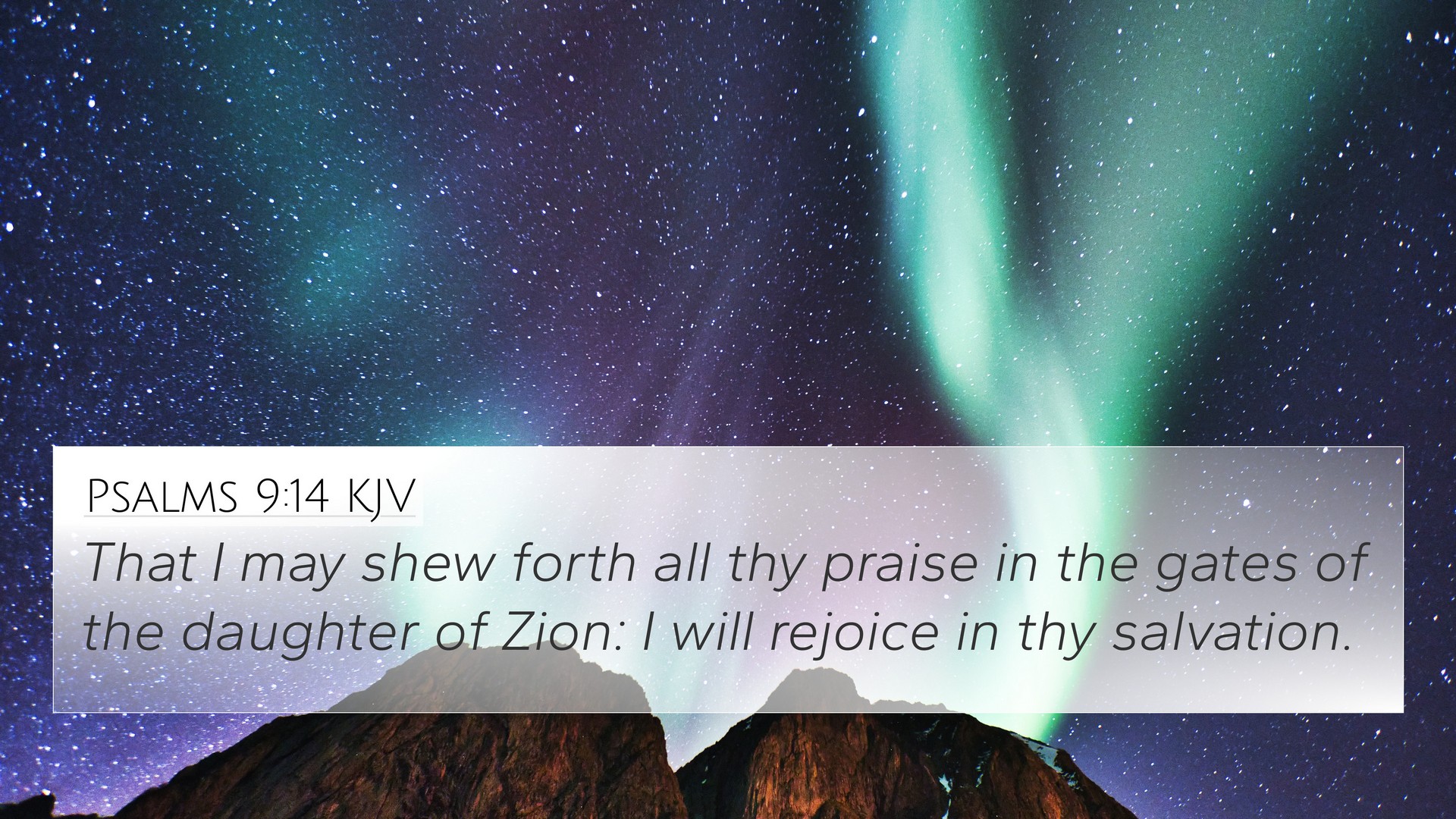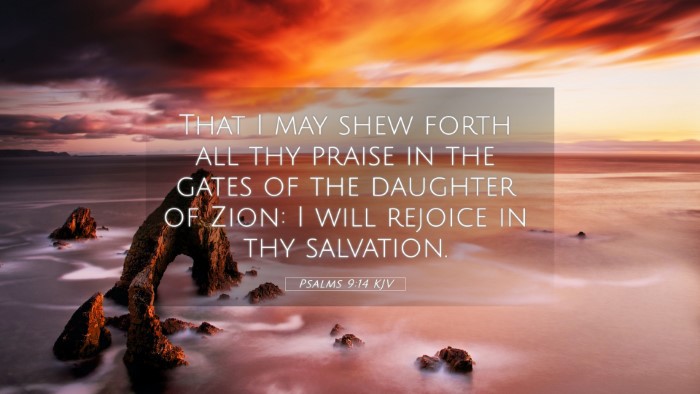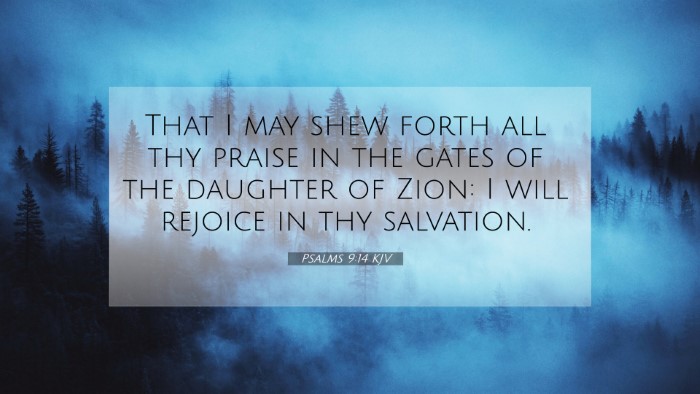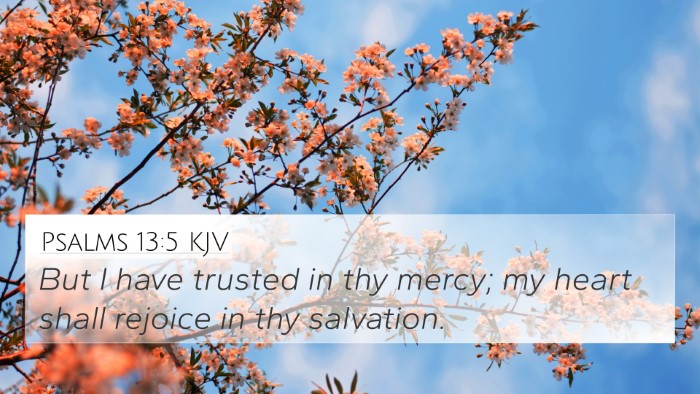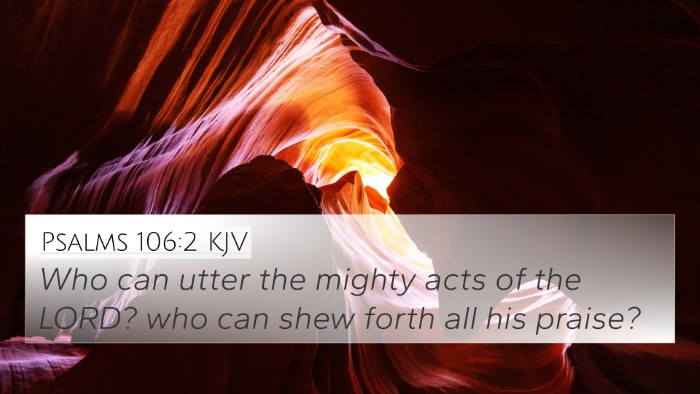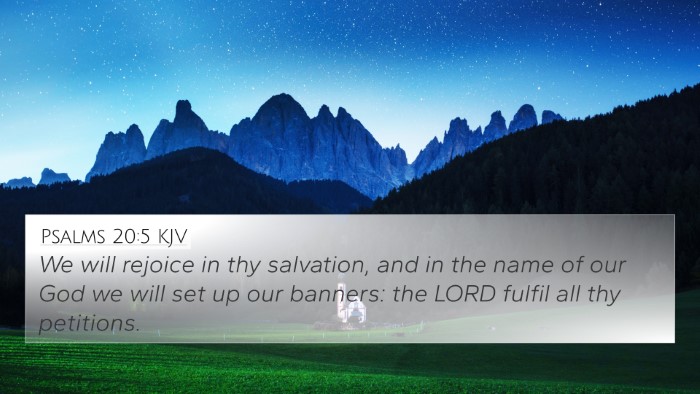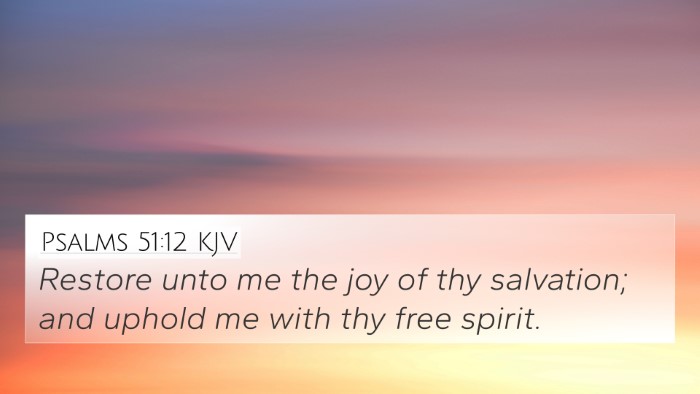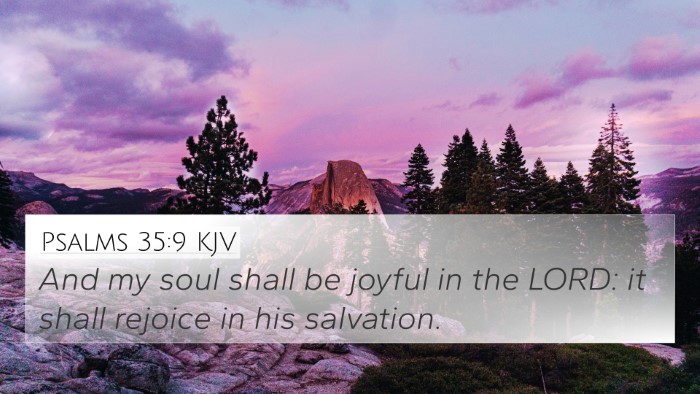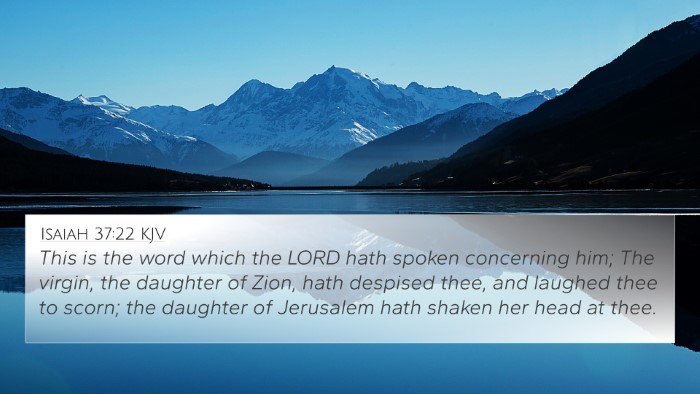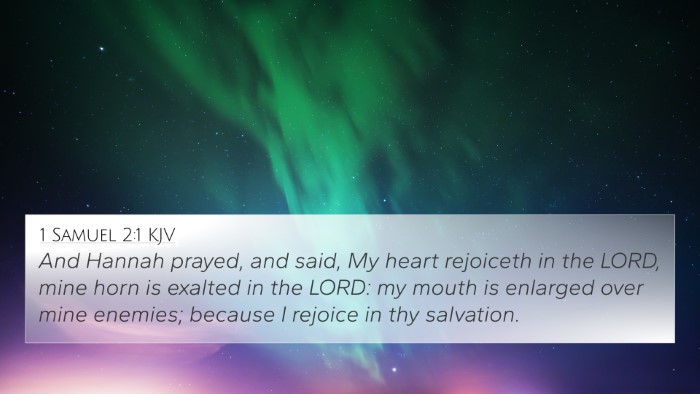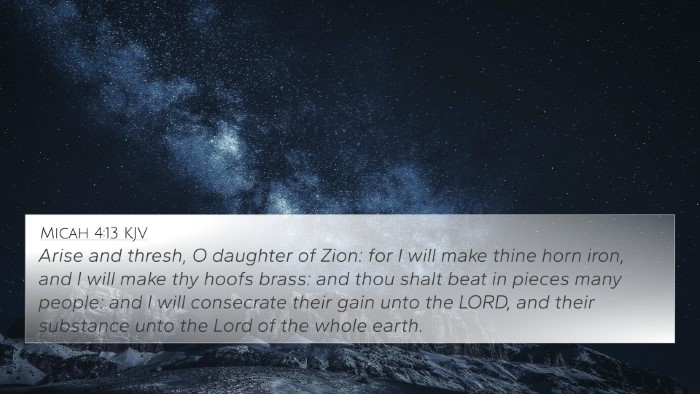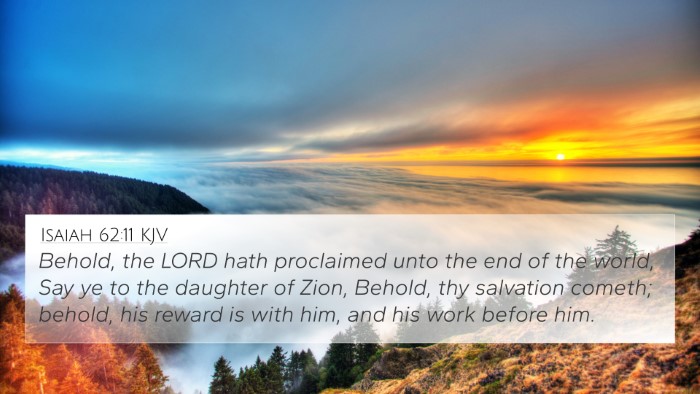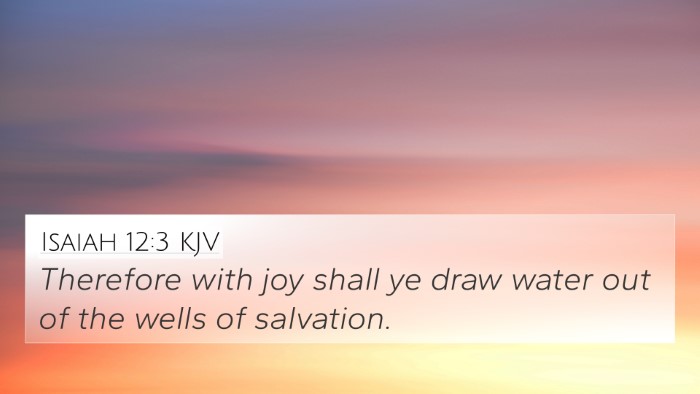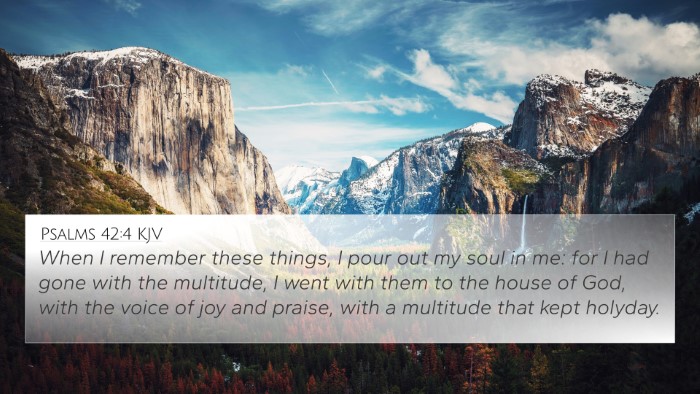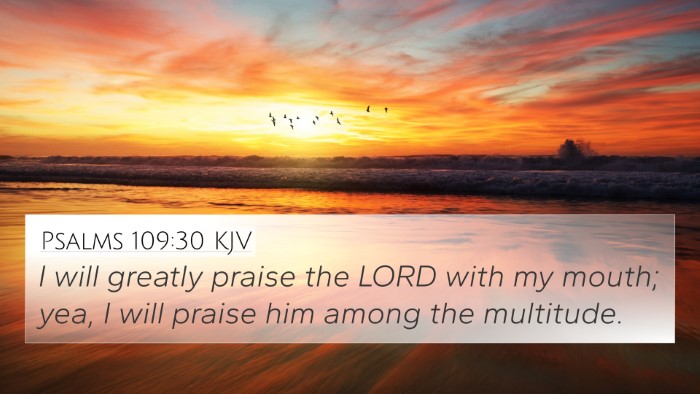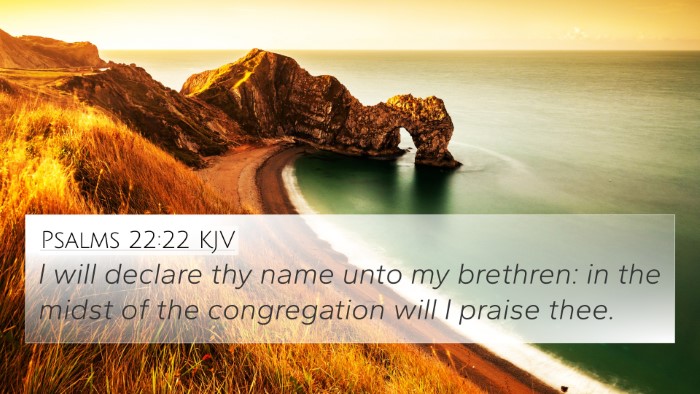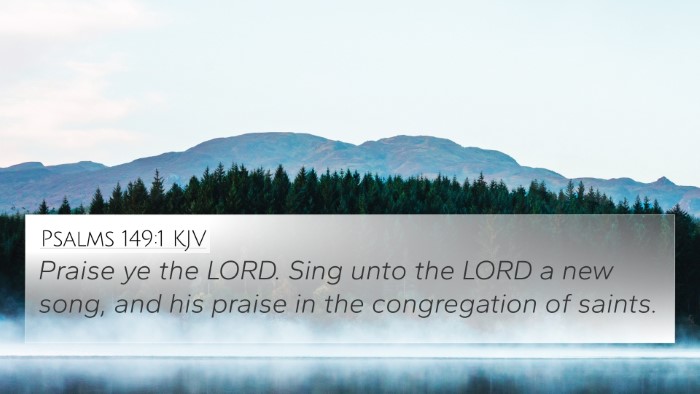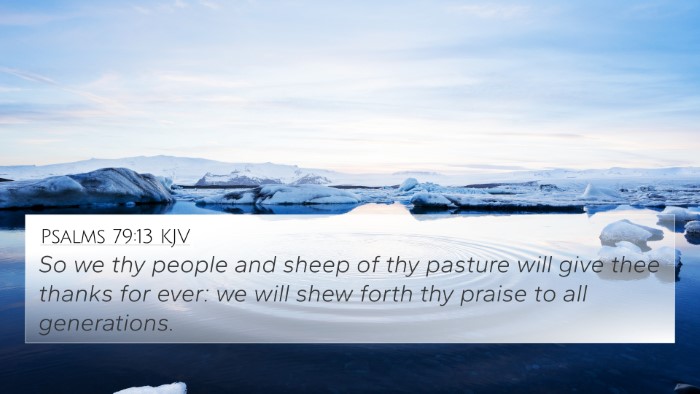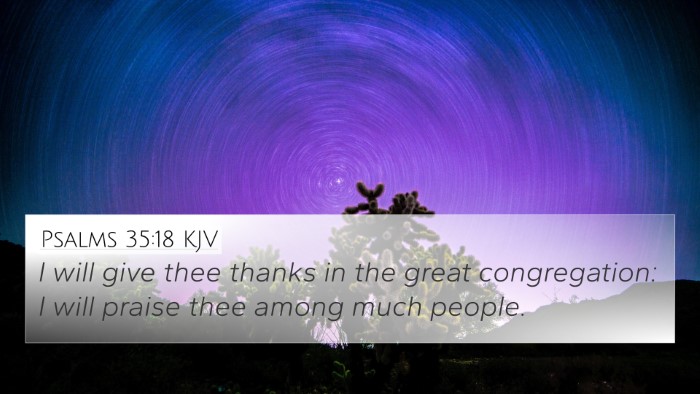Interpretation of Psalms 9:14
Psalms 9:14 states:
"That I may show forth all thy praise in the gates of the daughter of Zion: I will rejoice in thy salvation."
This verse highlights the psalmist's desire to proclaim God's praises and express joy for His salvation, particularly in the context of the community of Zion.
Meaning and Insights:
The insights derived from public domain commentaries give us a deeper understanding of this verse:
- Matthew Henry:
Henry emphasizes the importance of public worship and testimony. The gates of Zion symbolize places of gathering and significance in the community, where the faithful can come together to acknowledge God's works.
- Albert Barnes:
Barnes notes the cultural significance of the gates in biblical times as points of social interaction. Here, the psalmist aims to reveal God's attributes and the joy that stems from salvation, indicating that this expression should take place in public view to encourage others.
- Adam Clarke:
Clarke discusses the term "daughter of Zion," referring to the people of Jerusalem. He reflects on how the psalmist’s joy is not solely personal but communal, serving as an invitation for collective praise and celebration of divine deliverance.
Key Themes:
- Public Praise: This verse implies that personal experience of salvation should be declared among the community, underscoring communal worship.
- Joy in Salvation: The focus on rejoicing points to a profound response to God’s saving acts, suggesting that gratitude is a vital part of faith.
- Divine Protection: The context of the psalm discusses God's judgment against adversaries, highlighting the security that His salvation brings.
Cross-References:
Understanding how Psalms 9:14 connects with other scripture enhances our insight. Here are some relevant cross-references:
- Psalms 22:22 - A declaration to proclaim God's name among His people.
- Psalms 107:2 - "Let the redeemed of the LORD say so," encouraging testimony of His works.
- Psalms 30:12 - “That my glory may sing praise to You and not be silent.”
- Isaiah 12:4 - Encourages making known God’s deeds among the people.
- Philippians 4:4 - "Rejoice in the Lord always; again I will say, rejoice!" parallels the joy expressed in this Psalm.
- Luke 1:68 - "Blessed be the Lord God of Israel; for he has visited and redeemed his people."
- Revelation 19:1 - A call for rejoicing in God's judgments, connecting to the joy of salvation.
- Romans 1:16 - “For I am not ashamed of the gospel of Christ,” which aligns with the public proclamation called for in this verse.
- Hebrews 13:15 - A command to continually offer praise, resonating with the psalmist’s intention.
- Acts 2:47 - Reflects the joy of community praise as the early church did in recognizing God’s works.
Theological Reflections:
This verse serves not only as an individual statement but also as a reminder of the shared faith experience. The act of declaring God's praises in public is vital for building and nurturing communal faith. It connects with the greater narrative of salvation throughout Scripture, emphasizing that joy in God’s salvation should resonate within the community.
Conclusion:
Understanding Psalms 9:14 through the insights of historical commentaries and cross-referencing with other biblical passages allows for a richer comprehension and appreciation of the text. The themes of public testimony, communal joy, and recognition of divine salvation are universally relevant and echo throughout the Scriptures.
Cross-Referencing Skills:
Utilizing tools for Bible cross-referencing can deepen one's study. A Bible concordance or a comprehensive Bible cross-reference guide could be instrumental in exploring these connections further. Such resources enhance one’s ability to identify links between different passages, reinforcing teaching and understanding.
Further Exploration:
For those seeking a more detailed study, consider:
- How to find cross-references in the Bible
- Identifying connections between the Old and New Testament
- Comparative study of Pauline epistles to explore common themes of salvation
- Cross-referencing Psalms with New Testament teachings for deeper insights.
